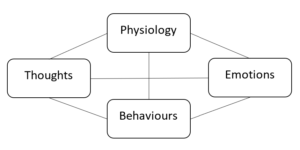Depression is a serious mental illness that can take over your life if left untreated. However, there is hope. Solution-focused therapy has been shown to be an effective treatment for depression. In this blog post, we will discuss what solution-focused therapy is and how it can help you overcome depression.
Contents
- 1 What Is Solution-Focused Therapy?
- 2 Is Solution-Focused Therapy Good For Depression?
- 3 What Are The 3 Major Principles Of Solution-Focused Therapy?
- 4 How SFT Is Different From CBT?
- 5 How Many Sessions Are In Solution-Focused Therapy For Depression?
- 6 What Are The Benefits Of Solution-Focused Therapy For Depression?
- 7 Conclusion
What Is Solution-Focused Therapy?
Solution-focused therapy (SFT) is a form of psychotherapy that began in the late 1970s. It is based on the idea that solutions to problems exist in the present. And focuses on those solutions rather than dwelling on past events or issues. This approach encourages individuals to identify what they want to change and then collaboratively work towards achieving those goals.
SFT is a short-term therapy and usually focuses on the future rather than looking back at past events that may have caused current issues. It emphasizes the individual’s strengths, resources, and capabilities in order to achieve solutions.
Is Solution-Focused Therapy Good For Depression?
Many people with depression find relief in solution-focused therapy. This type of therapy focuses on the present moment and the future, rather than the past. It helps people identify their strengths and use them to address current issues.
Solution-focused therapists use goal-setting to help individuals with depression make changes in their lives that can lead to a brighter outlook. They help people identify their goals and then create a plan on how to achieve them. Several studies have found that SFT can be an effective treatment for depression.
However, the focus on looking forward rather than backward can be frustrating for some people dealing with depression. They may have difficulty seeing how their current problems are connected to past experiences. And this can make it difficult to move forward.
It’s important that individuals seeking treatment for depression seek out a therapist who understands their needs and has experience helping others with this issue.
What Are The 3 Major Principles Of Solution-Focused Therapy?
 Solution-focused therapy for depression is based on three core principles, which are:
Solution-focused therapy for depression is based on three core principles, which are:
Listen
The first principle is to listen. By listening to your client, you can better understand the challenges they face. And what changes they need to make in order to improve their mental health. It’s important that you stay focused on their needs and concerns. Instead of trying to provide advice or solutions before understanding the situation.
Select
The second principle is to select. This involves selecting specific problems or goals that your client would like to work on in therapy. By focusing on one problem at a time, you can ensure that progress is made. And prevent any confusion or frustration from occurring.
Build
Finally, the third principle is to build. This involves providing strategies and techniques that your client can use to help them achieve their goals. It’s important to ensure that these strategies are tailored to the unique needs of each individual. And are evidence-based in order to maximize progress. You should also make sure that you provide support. And encouragement throughout the therapeutic process.
By following these three core principles, you can ensure that your client is able to make meaningful progress toward their desired outcome. Solution-focused therapy for depression is an effective approach that can help clients overcome their mental health challenges and lead healthier lives.
How SFT Is Different From CBT?
 Unlike CBT, which focuses on changing thought patterns and behaviors, SFT concentrates more on understanding our underlying emotions. And how they affect our thoughts and actions. By recognizing these emotional triggers and working through them in a therapeutic setting, individuals can learn to better manage their reactions to stressors.
Unlike CBT, which focuses on changing thought patterns and behaviors, SFT concentrates more on understanding our underlying emotions. And how they affect our thoughts and actions. By recognizing these emotional triggers and working through them in a therapeutic setting, individuals can learn to better manage their reactions to stressors.
In addition, SFT encourages us to let go of outdated beliefs and behaviors that may be preventing us from leading healthier, more balanced life. By learning to identify and accept our current emotional state, we can start to make lasting changes in our lives.
The main focus of SFT is on self-awareness and understanding how the emotions we experience are connected to the events around us. It is also about learning to be more compassionate with ourselves in order to make positive changes. Finally, SFT helps us shift our focus from the negative to the positive and encourages us to lead happier, healthier lives.
In conclusion, both CBT and SFT are evidence-based approaches that can help individuals learn more effective ways of managing their emotions and behaviors. However, while CBT focuses on changing thought patterns and behaviors, SFT focuses more on understanding our underlying emotions and how they affect us.
How Many Sessions Are In Solution-Focused Therapy For Depression?
When it comes to solution-focused therapy for depression, the exact number of sessions needed varies depending on the individual’s needs. Generally speaking, six to twelve sessions are usually recommended in order to achieve meaningful therapeutic progress. However, some may require more or fewer sessions depending on their particular situation and goals.
It is important to note that the success of any type of therapy depends on the commitment of both the therapist and the client. Regular attendance, open communication, and a willingness to explore new techniques are all important for achieving positive results.
Solution-focused therapy also emphasizes the importance of maintaining long-term goals as well as short-term objectives. This type of therapy encourages clients to take an active role in their therapy. And to develop self-awareness and resources which can be used to cope with depression.
What Are The Benefits Of Solution-Focused Therapy For Depression?
 The following are some of the potential benefits of solution-focused therapy for depression:
The following are some of the potential benefits of solution-focused therapy for depression:
1. Rapid Changes – This therapy is a short-term therapeutic approach that can help clients quickly identify and work towards achieving their goals. This means that clients will be able to see results in a relatively short amount of time, allowing them to start feeling better sooner.
2. Empowerment – It is highly empowering because it puts the focus on the client’s strengths and abilities to find solutions, rather than dwelling on their problems. Clients will be encouraged to take ownership of their own situation, giving them a sense of control that can help them deal better with depression.
3. A Positive Outlook – Solution-focused therapy focuses on the positive aspects of a situation, allowing clients to regain a sense of hope and optimism in their lives. By focusing on what can be done rather than what has gone wrong, clients will be able to see their future in a brighter light.
4. An Environment Of Support – Another great benefit of this therapy is that clients will be provided with a safe and supportive environment to explore their feelings and gain better insight into their situation. This can help them feel more secure in working towards solutions, allowing them to move forward in life.
5. Strengthened Relationships – Finally, SFT can help strengthen relationships between clients and their loved ones. Focusing on solutions can give clients the tools to better communicate with family members and friends, which in turn can lead to greater emotional support.
These are just a few of the potential benefits of solution-focused therapy for depression. Each person will experience different results. But by working with a qualified mental health professional, clients can receive the support they need to start feeling better. With dedication and effort, SFT can help reduce depression symptoms and provide people with a renewed sense of hope for their future.
Conclusion
In conclusion, solution-focused therapy for depression has proven to be a successful treatment in many cases. Due to its ability to create achievable goals, help individuals find internal strengths, and cultivate motivation for change. This therapy also encourages clients to focus on the positives. And helps them gain insight into how their behavior may have contributed to their depression.
While this type of therapy is not a “quick fix”, it can be effective in helping individuals improve their mental health. With the right guidance and dedication, clients may find that SFT for depression helps them move forward in life.
Depression is a mental illness characterized by persistent feelings of sadness, hopelessness, and loss of interest in daily activities. If you have any queries regarding Online Depression Counseling experienced therapists at MantraCare can help: Book a trial Depression Therapy session


